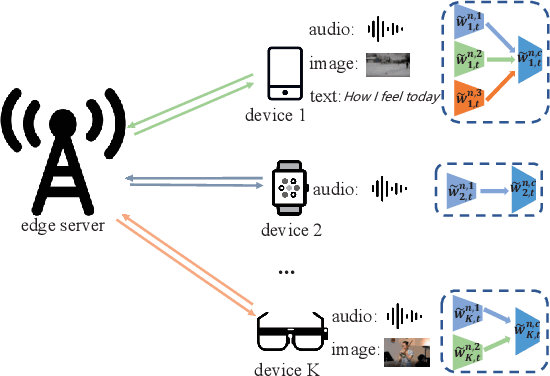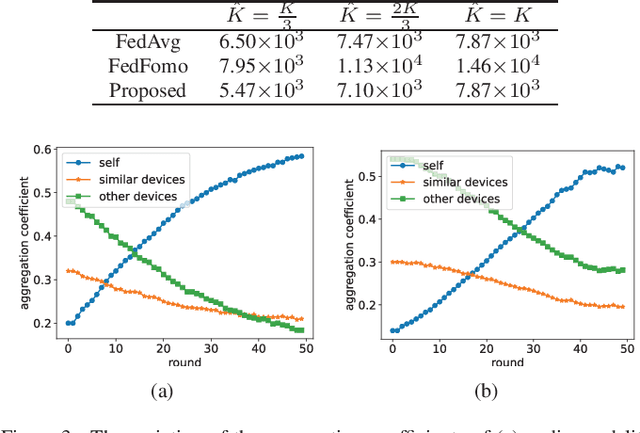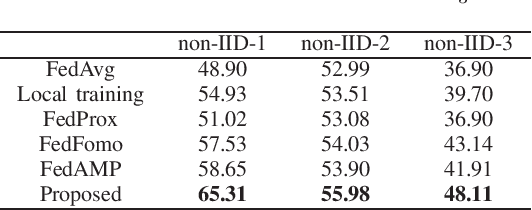Benshun Yin
Aggregation Design for Personalized Federated Multi-Modal Learning over Wireless Networks
Jun 12, 2024



Abstract:Federated Multi-Modal Learning (FMML) is an emerging field that integrates information from different modalities in federated learning to improve the learning performance. In this letter, we develop a parameter scheduling scheme to improve personalized performance and communication efficiency in personalized FMML, considering the non-independent and nonidentically distributed (non-IID) data along with the modality heterogeneity. Specifically, a learning-based approach is utilized to obtain the aggregation coefficients for parameters of different modalities on distinct devices. Based on the aggregation coefficients and channel state, a subset of parameters is scheduled to be uploaded to a server for each modality. Experimental results show that the proposed algorithm can effectively improve the personalized performance of FMML.
Predictive GAN-powered Multi-Objective Optimization for Hybrid Federated Split Learning
Sep 02, 2022



Abstract:As an edge intelligence algorithm for multi-device collaborative training, federated learning (FL) can reduce the communication burden but increase the computing load of wireless devices. In contrast, split learning (SL) can reduce the computing load of devices by using model splitting and assignment, but increase the communication burden to transmit intermediate results. In this paper, to exploit the advantages of FL and SL, we propose a hybrid federated split learning (HFSL) framework in wireless networks, which combines the multi-worker parallel update of FL and flexible splitting of SL. To reduce the computational idleness in model splitting, we design a parallel computing scheme for model splitting without label sharing, and theoretically analyze the influence of the delayed gradient caused by the scheme on the convergence speed. Aiming to obtain the trade-off between the training time and energy consumption, we optimize the splitting decision, the bandwidth and computing resource allocation. The optimization problem is multi-objective, and we thus propose a predictive generative adversarial network (GAN)-powered multi-objective optimization algorithm to obtain the Pareto front of the problem. Experimental results show that the proposed algorithm outperforms others in finding Pareto optimal solutions, and the solutions of the proposed HFSL dominate the solution of FL.
 Add to Chrome
Add to Chrome Add to Firefox
Add to Firefox Add to Edge
Add to Edge